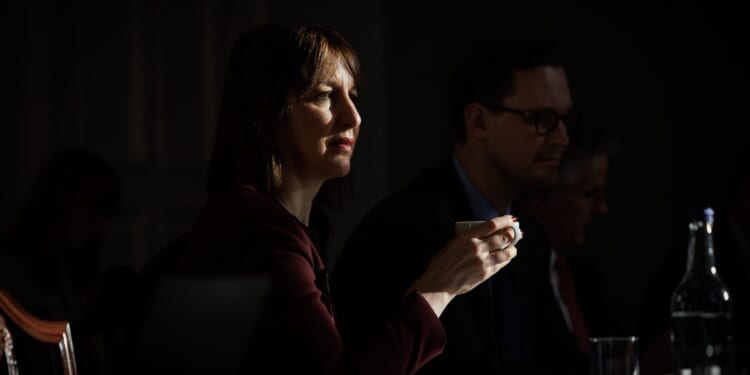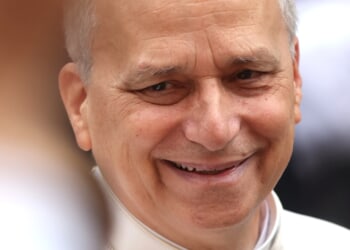Reem Ibrahim is Head of Media and Linda Whetstone Scholar at the Institute for Economic Affairs.
Earlier this week, Chancellor Rachel Reeves delivered an unprecedented pre-budget speech.
Bizarrely, it was at the discourteous time of 8am on a Tuesday. What was abundantly clear, however, is that we are going to see a whole host of further tax rises at the budget on the 26th of November.
The Government called it her “Scene Setter” speech.
It ought to have been called something along the lines of the “Doom Setter” speech, or perhaps more aptly the “Tax raid preparation” speech, because every single line was intended to prepare us for the Government’s abandonment of its manifesto pledges.
In the few weeks remaining before the budget, one would expect plenty of spotlight on page 21 of that manifesto, where it says, in black and white:
“The Conservatives have raised the tax burden to a 70-year high. We will ensure taxes on working people are kept as low as possible. Labour will not increase taxes on working people, which is why we will not increase National Insurance, the basic, higher, or additional rates of Income Tax, or VAT.”
These were very specific pledges. They promised that, in Government, they would not raise taxes on what they described as “working people”. In what they must have thought was a brilliant political ploy, the term could be stretched and bent enormously.
What is a “working person”? Is it anyone that works?
The tax hikes we have seen thus far have, according to the Government, been focused on those that are not “working people”.
When Rachel Reeves increased employers’ National Insurance Contributions earlier this year, the Government claimed that this was not an increase in tax on “working people”, but on employers. Of course, almost all of the incidence is passed on to employees in the form of lower wages and reduced work. It was, by all accounts, an increase in taxation on “working people”, whatever definition of that group you use.
In the three months to September, vacancies fell by 9,000. Rather obviously, if you make it more expensive to employ someone, employers will be less willing to make new hires.
This is just one example of the Government’s contribution to our current economic malaise.
Upon listening to the speech this week, I was amazed by how swiftly Reeves blamed external factors for her abandonment of election promises. Now, we are told, “The world has thrown even more challenges our way”, and so more tax rises must follow.
Because the manifesto pledges were so clear and specific, it will be more difficult to deny that any of the rumoured tax rises this month aren’t direct breaks from the promises made at the election last year.
The rumours suggest that the Chancellor may break the 50-year tax taboo, and put up a tax they promised, in black and white, they would not raise – income tax. It has been more than half a century since Labour’s Chancellor of the Exchequer Denis Healey chose to put up the basic rate of income tax in 1975. He raised the basic rate of income tax from 33 per cent to 35 per cent, and eventually was forced to, rather embarrassingly, go to the IMF for a bailout loan.
The 1970s were eclipsed by economic catastrophe. Observing this, the Wall Street Journal concluded that it was time to say farewell: “Goodbye Britain. It was nice knowing you.”
The fiscal situation in 1975 was scarily similar to what it is today. Denis Healy had inherited an economic mess, and after serving as Chancellor for a year, failed to get a grip of the problem and instead made things whole lot worse.
So, Rachel Reeves is not the first Chancellor who has thrown us into a fiscal ditch. To be abundantly clear, our current levels of economic despair have very little to do with external factors and everything to do with Government policy.
Public spending as a proportion of GDP is now at approximately 44 per cent. Almost half of the British economy is the state. The Government spends almost 10 per cent on debt interest payments. We are literally taxing and borrowing more to finance our own debt, which is insane!
Regulations continue to pile on and stop businesses from growing. The Government’s new Employment Rights Bill, for example, will further worsen labour market conditions. By giving employees day-one dismissal rights, employers are much less likely to take a chance on the young and inexperienced, as they will be liable for those costs. Both this Government and the last have continued to implement fluffy and nice-sounding regulations like this, without confronting the real-life unintended consequences.
Unhelpfully, 1 in 4 working-age adults are now not in work. When the labour market is in the state it is in, and can so easily claim you need disability benefits for anxiety, can you blame them?
The state is, fundamentally, what is holding Britain back.
Unfortunately, this year is not the last time we will see tax increases. We will almost certainly see taxes rise again next year, and the year after, and the year after, until someone decides to do the politically unpopular thing and actually cut public spending.
This is where it gets hard.
The only way out of this fiscal doomloop is to be bold. Be brave. We must drastically slash the size of the state. Perhaps we could abolish whole Government Departments (I’d start with the £8 billion Department for Culture, Media and Sport).
However, the real meat of public spending cuts has to grapple with the reality that our current welfare offering is not compatible with demographic changes. Rising healthcare and welfare costs can be attributed to the bulk of public spending rises, and if this is not tackled, the size of the state will continue to increase.
The triple lock on pensions, for a start, should be abolished. When 25 per cent of pensioners are millionaires, it is completely unjustifiable to continue handing out benefits to the entire cohort. Australia means-test their state pension, why can’t we?
Unfortunately, I am afraid that no political party appears to be willing to promise to do what is actually needed to remedy the economic crisis we are facing because, whoever does, will not win an election. Politicians enjoy political popularity. We are going to end up in a situation where they do not have a choice.
It is time for politicians to be brave and do what must be done.

















